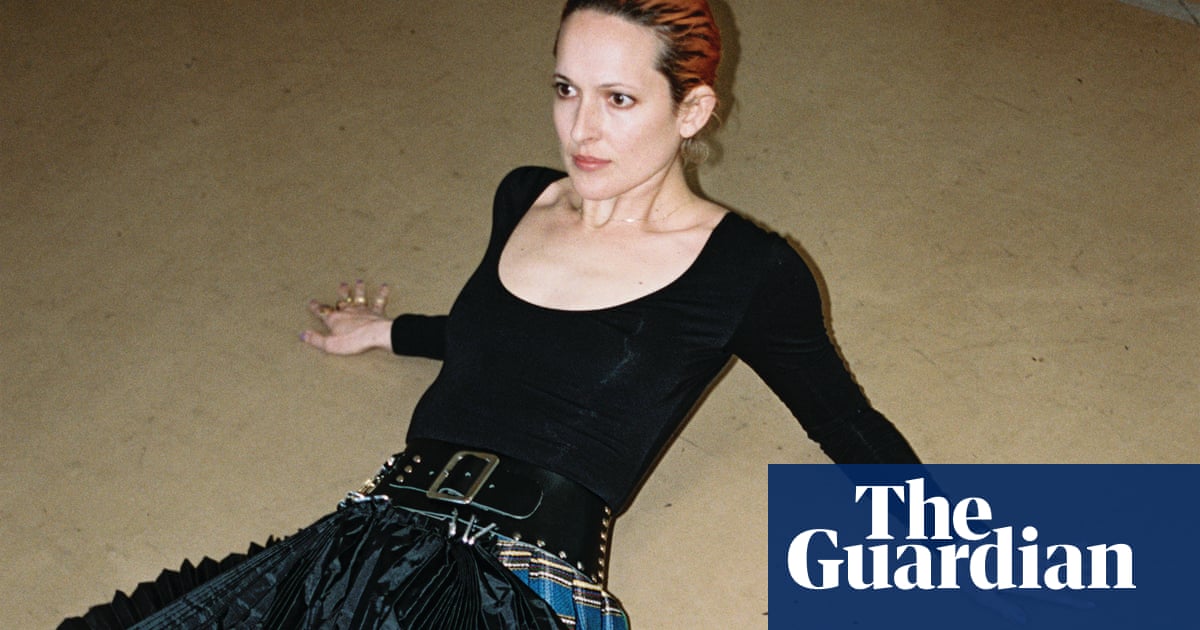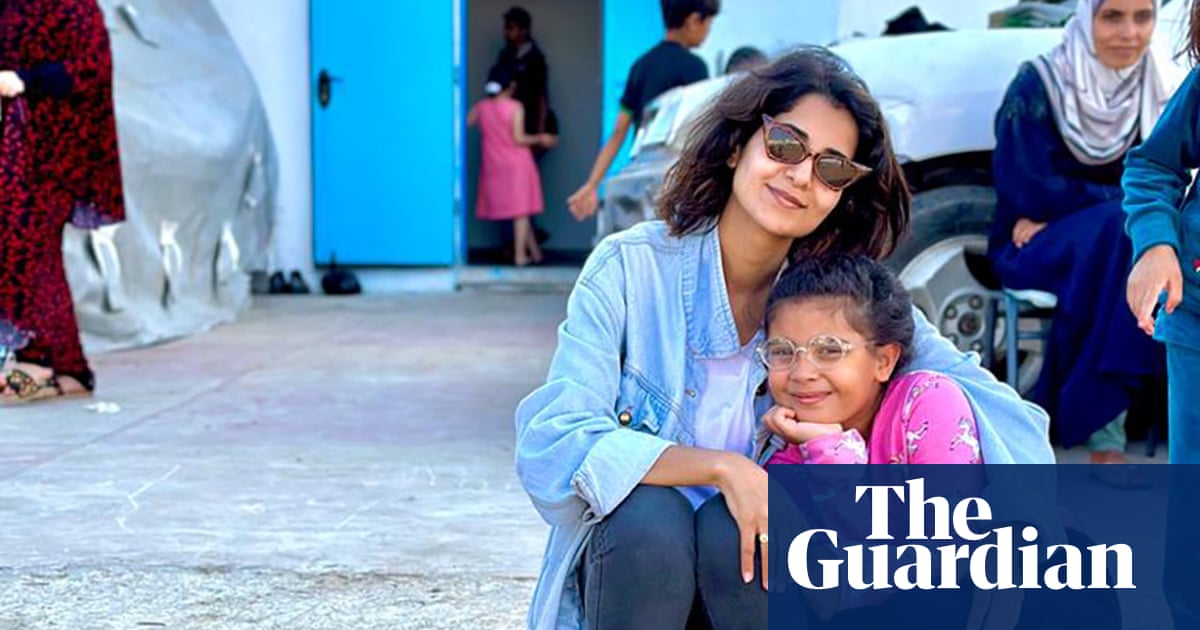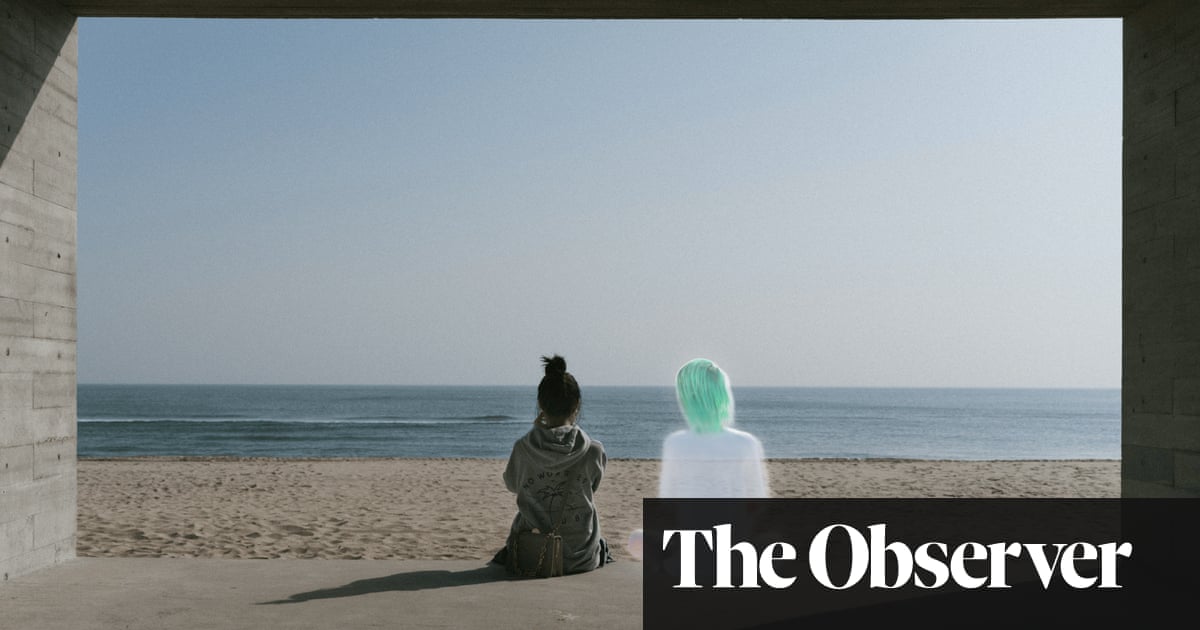
“People often have this idea that I’m trying to be grotesque, or be shocking, but it couldn’t be further from what I’m trying to do. I’m just trying to be honest,” says Holly Blakey. “I’m a female choreographer and I want to own that space, and be allowed to be all things: stupid, beautiful, hysterical, sexual, ugly, unapologetic,” she adds, shivering in a north London rehearsal room, quiet-voiced but certain of herself.
Blakey’s dance, whether in music videos, fashion campaigns or her live work, isn’t always what you’d call pretty. It can be warped and scuzzy, repetitive and relentless, bluntly sexualised. “I want to play with what’s acceptable on the contemporary dance stage,” she says. But it isn’t meant to be alienating; it’s meant to be recognisable. “I’m trying to be earnest. I’m trying to respect people and say: ‘We’re all like this.’”
Still, even the title of her latest performance, Cowpuncher My Ass, has a contrariness about it. Cowpuncher is an old term for a cowboy, and this piece is a reworking of her sequel to the 2018 piece Cowpuncher. When she was commissioned to make that first work with composer Mica Levi, they landed on the idea of westerns, not because Blakey was particularly a fan of the films but because she was fascinated by the archetype of the cowboy – “hypermasculine yet so camp” – and found much to explore in the genre in terms of sexual politics, gender and power. She churns up the stereotypes and presents a motley band of “messy” characters (all dressed in Andreas Kronthaler for Vivienne Westwood), whose bodies writhe and quake and line-dance. Or, as the Observer review described it, “a bubbling stew of 100 different dance languages” which “turns into a sordid frenzy”.
Blakey likes to say she is not referencing pop culture in her work, but that her work is pop culture, and she’s more engaged with the language of music, films and TV than with dance. “If I could strive for anything in my live work, it’s for it to feel like a series of The Sopranos,” she says. Where you’re most likely to have seen Blakey’s choreography is in music videos: the one where Coldplay turn into dancing chimps, for example, or Florence + the Machine’s award-winning Delilah, as well as promos for Jorja Smith, Lianne La Havas and, most recently, Spanish pop superstar Rosalía. (“An incredible person and performer: robust, serious, unafraid,” says Blakey.) She’ll work with singers in the studio, not so much teaching them to dance as “trying to harness what’s interesting about them. Sometimes we don’t know what’s interesting about us, do we? It takes other people to notice.”
This is a golden age for music video choreography, reckons Blakey. “The old idea that you have a narrative that you choreograph some dance on top of has changed,” she says. “Now the dance is the idea, the dance is the story.” She also works with fashion labels (Dior, Burberry, Gucci) and in advertising. That immersion in the fashion and music worlds has meant that she sits outside the dance establishment and hasn’t followed an obvious path. Born in Harrogate, Blakey started dancing as a child. At first she wanted only to be a ballerina but discovered contemporary dance after struggling with anorexia as a teenager and spending time in hospital. (“I say I was diagnosed with anorexia, but I feel like that wasn’t really the main problem. But when is it, I guess?”)
She didn’t get into the top dance schools she auditioned for, ending up at Roehampton University, south London, where she was steered towards teaching. “That’s a wonderful thing but it’s not what I wanted. I was devastated, to be honest,” she says. But it was the making of her. “It made me so driven. I had so much to prove.” She spent all her spare time training outside university and making her own work. “I spent a long time feeling really chippy about it,” she says, “and now I feel really thankful, because it’s allowed me to have my own sense of curiosity, less institutionally guided, and made me quite furiously committed.”
The other thing that fed into Blakey’s work was her teenage raving days, going to illegal gatherings in the countryside with her sister, dancing nonstop all night. She loved it, “the communal activity, the togetherness, the euphoria, the continuous loop of moving”. Life has changed since then (aged 35, she has two small children with her partner, the musician Gwilym Gold) but the instinct is still there. “My boyfriend would say to me: ‘How do you guys rehearse all day and then want to go out and dance all night – what is that?’ But dancers are curious beasts; nothing stops that craving for moving.”
In her stage work, Blakey wants to capture some of that sense of community of the dancefloor. She talks about a spiritual feeling, an “earthly, tribal quality”, “the clan-like behaviours we crave and exist for”. And she wants the audience to be part of that clan. The methods for doing so can be unexpected. In Cowpuncher My Ass, for example, the house lights stay up for the first half of the show. The dancers weren’t happy with that decision: “They were like: ‘What are you talking about, full lights?!’ Suddenly it was wide open, there was no mood for them to absorb,” laughs Blakey. “But [in the audience] I can feel myself in the space, I’m aware of who’s sitting next to me, what they’re thinking and when they wipe their nose. The idea was to let the audience really be in it, not just looking.”
Not everyone is into that. Blakey gets love/hate reactions to her work, and often finds it is regular dance audiences who don’t like it. She is used to being divisive, although she was surprised by the reaction to Phantom, a film she made for Fact magazine with dancers from London Contemporary Dance School. The job came only a week after she’d had a miscarriage and the piece became a sort of folk fertility ritual in fluorescent Lycra, laced with deep anger. “This calling for something that wasn’t ever going to come,” she says. “And it caused a stink [online], that film. So much drama, so many people going crazy: ‘This is appalling! What an awful idea!’” But Blakey is proud of the film and glad she did it. “Never read the comments,” she rues. “But I do, and I torture myself with it always.”
Blakey has been working on the Cowpuncher series for five years now, “and it’s almost dead as a piece of work for me”, she says. What’s new for this last hurrah is a collaboration with the London Contemporary Orchestra, whose string players will appear on stage in a new section. Blakey describes the scene, starting with the harsh scratching tone of Levi’s soundtrack and then turning into a beautiful, melodic song. “In a way the strings come out and just push everything away, they kind of kill it, and I just want to embrace the failure of it … And I want there to be a sweetness in that, to celebrate that and let it be heartbroken and let it die.” Because things do fail and life is messy and there isn’t a neat resolution? “Yeah, and why not present that if it’s the truth,” says Blakey. “Don’t we all, deep down, often feel that way, and can’t we share something in that?”
Blakey’s exotic, eccentric characters look nothing like the “real world” but somehow she wants to reflect it; more than that, in fact – to be it. When I ask her what Cowpuncher is all about, she says: “People, and the way we exist and the way we share things with one another and the way we take things from one another. And the violence that’s inside us and our deep sense of loneliness and beauty and togetherness and the terrible ways we behave. That’s what the work’s about.”












